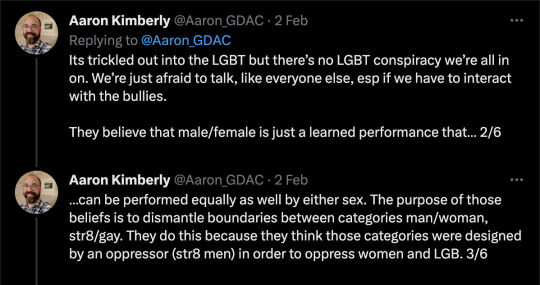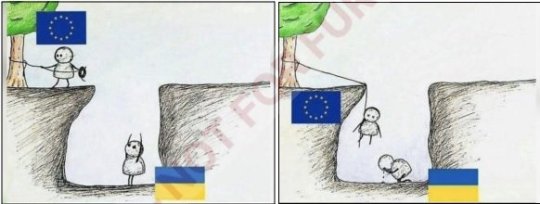#factice magazine
Explore tagged Tumblr posts
Text






Arden Cho for Factice magazine, 2016
#arden cho#actress#actor#model#magazine#photoshoot#fashion#style#famous#celebrity#hair#makeup#2016#2010s#factice#factice magazine
52 notes
·
View notes
Photo

Marina Romashina by Anna Zesiger for Factice Magazine March 2017
#Marina Romashina#Anna Zesiger#factice magazine#editorial#fashion#mode#moda#model#models#woman's fashion#womenswear#style#white#2017#my upload
3 notes
·
View notes
Text

#fashion#fashion photography#fashion photoshoot#photography#photo#model#editorial#fashion magazine#factice magazine
5 notes
·
View notes
Text

Violet Chachki for Factice Magazine, 2016
2 notes
·
View notes
Text




Gender reality is performative which means, quite simply, that it is real only to the extent that it is performed.
-- Judith Butler, “Performative Acts and Gender Constitution: An Essay in Phenomenology and Feminist Theory”
--
This doing of gender is not merely a way in which embodied agents are exterior, surfaced, open to the perception of others. Embodiment clearly manifests a set of strategies or what Sartre would perhaps have called a style of being or Foucault, "a stylistics of existence." This style is never fully self-styled, for living styles have a history, and that history conditions and limits possibilities. Consider gender, for instance, as a corporeal style, an 'act,' as it were, which is both intentional and performative, where 'performative' itself carries the double-meaning of 'dramatic' and 'non-referential.' When Beauvoir claims that 'woman' is a historical idea and not a natural fact, she clearly underscores the distinction between sex, as biological facticity, and gender, as the cultural interpretation or signification of that facticity. To be female is, according to that distinction, a facticity which has no meaning, but to be a woman is to have become a woman, to compel the body to conform to an historical idea of 'woman,' to induce the body to become a cultural sign, to materialize oneself in obedience to an historically delimited possibility, and to do this as a sustained and repeated corporeal project. -- Judith Butler, “Performative Acts and Gender Constitution: An Essay in Phenomenology and Feminist Theory”
--
Queer theory functions to complicate existing academic frameworks, and conceptions of social relations, by deconstructing the dominant, heteronormative structures undergirding extant scholarship (Marinucci, 2010). One theoretical strategy relies on an insistence on the social construction of gender and sexuality (see Butler, 1990). Theories of social construction claim that human identities are not inherent or essential (that is, having an essence), but rather emerge out of social relations and discourse. In Butler’s (1990) work, she understands gender as produced through repetitive practices of personal and social practices. In other words, one’s gender does not exist a priori discourse, but instead is constructed by characteristics and experiences. At the base of social constructionist theories is the assumption that, since identities are constructed, they can always be constructed otherwise.
Queer theory also offers the opportunity to rethink or reimagine normative or dominant discourse “queerly.” Intellectual labor of this sort requires scholars to transpose queer ideas of identity formation and social relations to texts that might otherwise be taken for granted as part of the dominant sex-gender-sexuality matrix. For instance, one might imagine that two women in a mainstream magazine advertisement are lovers and then consider the social and political import of such a reading. Or one might “read” texts through a queer lens, as illustrated by Alexander Doty in Making Things Perfectly Queer (1993), which allows scholars to offer a queer “corrective” to mainstream interpretations of media culture. One could also read historical discourse queerly, as Chuck Morris (2007) and others do in Queering Public Address, an intellectual strategy that allows us to imagine a queer past.
One of queer theory’s strengths is its explicitly political character. Drawing on its roots in feminist intellectual projects, queer theory attempts to bridge the gap between the academy and the populations being theorized (Beemyn & Eliason, 1996). Because queer theory functions to complicate and challenge heteronormativity, it is situated in opposition to many oppressive practices (sexism, homophobia, etc.). Queer theory thus has the potential to undermine systematic domination by deconstructing the practices that lead to oppression. Scholars and activists (these identities frequently overlap within the realm of queer studies) often find that queer theory and the process of deconstruction is a productive way to rethink identity and to rework social relations. In its ideal manifestation, queer theory is also a form of queer practice.
-- Sherwood Thompson, "Encyclopedia of Diversity and Social Justice" (TOR)
==
Gender dysphoria (Gender Identity Disorder) is not required; this isn't about alleviating distress.
https://www.hrc.org/resources/glossary-of-terms
Transgender | An umbrella term for people whose gender identity and/or expression is different from cultural expectations based on the sex they were assigned at birth.
https://www.realityslaststand.com/p/exposed-gender-workshop-for-parents
Question: Do you need to have gender dysphoria to be trans?
Kyle responds, “Absolutely not, no. Not every person is going to experience dysphoria, or sometimes it might develop, or it might come and go like a little annoying house guest.” Kyle then says “You don’t need to have anything to be trans besides the knowledge or the feeling that you’re trans.”
No form of transitioning - literally the trans in trans- is required.
https://www.hrc.org/resources/glossary-of-terms
Transitioning | A series of processes that some transgender people may undergo in order to live more fully as their true gender. [..] Transgender people may choose to undergo some, all or none of these processes.
Note: Queer Theory says that there can be no such thing as a "true gender," as it's performative and socially constructed, not innate; something you do, not something you are or have.

==
This isn't a civil rights movement, it's a political ideology that denies objective, material reality in order to undermine and dismantle it. Because trans experience is defined by biology, this denial of all things anchored in reality - including psychology and neurology - means it's as much anti-trans as it is anti-everything-else, while wearing the mask of trans people, Face/Off-style, and pretending to be the real thing.
The human rights issue issue at hand is the damage it's doing to lesbians, gay men, bisexuals, transsexuals, those with intersex (DSD) conditions, women, children - especially those who are NGC, autistic, gay, or have self-esteem or body issues, and therefore vulnerable - and yes, men and heterosexuals too, as objective reality itself becomes unspeakable.
#Aaron Kimberly#queer theory#feminist theory#western feminism#political movement#identity politics#transsexual#transsexual not transgender#gender cult#gender performativity
40 notes
·
View notes
Photo

Keely Thurecht for Factice magazine
10 notes
·
View notes
Text

... womans art...
Aleksandra Byra photographed by Kate Strucka for Factice Magazine (Feb 2013)
Design by Nika Danieleska
1 note
·
View note
Text
The siren song of anonymity
Life is strange. We are, immediately, lured astray by the movements of desire (the ruse of desire?). I guess we can see there are many oblique movements in the variety of pure existence, but these are not actual references: there is only constant replication, which is a direction of happiness - nothing more, nothing less. The bureaucracy was organized on the principle of hopeful conduct, which is now the merit of the shamanistic replicators, that will house the power of the Lord forever; this is a noise-rebuttal of the nagging application of sensibility and intuition and this goes on. A man can make a visceral joke: this shall surely make us fear the moribund reflection of the manifold assertivity, which is still living in the plan of the entire populace, building castles in the air. The authority which structures existence - the potestas - is certainly a recurrence of the good old days, which do still live on in the work of the actuaries; and to do actuary work is definitely exalted, although few know the actual processes of it: why, it is verily just a repercussion, or resonance, of the pretty good replication of the manifold, who build castles in the air as I said - and this is constantly a sign of the times: good things will continue to happen, but we must seek to admit that doctorates are not meaningful in the constancy of the stoic sage, or be that as it may, the circulation of vegetative or comatose licks of the language: and verily, language speaks.
Aristocratic love, a function of moribund assertivity, verily lives in the market of vicissitudes of good and bad, which continue to live on even in the curious cases of feeling and distance. There is certainly a kind of tyranny in the construction of normal society, and this goes on until the very end. However, the colonial program of sex and death is now happening over and over again - even in true silence, which happens under the auspices of the ancient bloodlines that will succour us in the silence of rock'n roll or something like that: and this is a threat to bureaucratic, dignified power, because we forever worship not dogma, but grammar. In this sense, grammatology is very dangerous.
Dead facts, militariness, verily continues in our factical deprivation or privation and life truly is a circus. I encounter visiccitudes in the normality of sheer redundancy, which really makes me pine of the scenic worldviews of the good men who were once satisfied with what was little enough to be squashed by the machines of war and this is really a reminisence. However, our fantasy of the strictures of visibility truly goes on in a particular way (because we are stoned to death by the limitless authority of solvability) and in this interstice we concur with happiness, battle and combat. So in the end our hope is pinned on not religion, but really on Earthly authority - and we just used the church, in so many ways, to achieve peace of mind - yet there are infinitely many ways of life and we can verily live in any way we like; and of course we are kind of stuck in the accreditations of the museal noise and feral sentence-structure in which the totality of theology and bureaucracy is captured; and obviously, no man likes to be a bureaucrat, so what we see in history is that there is slowly the development of the independent office and so finally, of the column-paper, the magazine of news-based essay. Reading the newspaper is for me not some way to pass the time, but truly just a form of philosophy, a métier, an commandment. Anyway, I really admire the spurious facts of fiction, which lie crazily close to Islamic theology, which is not theology at all, but an alternative form of metaphysics. I will read the Quran when I am ready. The female power of memory is structural in the retribution of virtuous happiness in theory even: so we are confused about the actual nature of theory. There is a facticity in the endlessness of space and time that is reflected in the very act of reasoning, and this the direction of true happiness. Yes, we can really grow in awareness and simplicity if we just use this vigour of carnal hope and visceral energy that is concealed not in day-jobs or scribal mail, but actually in the Christian or shamanistic contact of community and help, of goodness and decency, of malingering and laconicism. Because what remains is always that there is no liberty in oppression.
1 note
·
View note
Text

Note : le journal The Times n’est pas un site factice créé par les services de renseignements russe, mais l’un des journaux britanniques les plus respectés et Tristan Mendès « France » est bel et bien juif.
J’allais justement le dire, mais si les Anglais le disent en premier, très bien.
Il est temps de parler de la chute de Kiev (écrivez « Kyiv » si vous êtes homosexuel).

C’est désormais admis : l’Ukraine est finie et ce n’est qu’une question de temps avant que la Russie remporte une victoire triomphale sur le juif Zelensky.
The Times :
Nous sommes en juillet et l’armée russe est aux portes de Kiev. Le président Zelensky diffuse un message d’urgence pour réitérer ses propos provocateurs, prononcés pour la première fois en février 2022, selon lesquels il n’a pas besoin de quitter l’Ukraine. Non, il a besoin de munitions pour rester et combattre les Russes. Si seulement l’Occident avait écouté et fait davantage lorsque les courageux Ukrainiens imploraient de l’aide, cela aurait pu faire la différence. Alors que les alliés se querellent et que les États-Unis finissent par fournir 60 milliards de dollars d’aide supplémentaire, le printemps se transforme en été et les troupes de Poutine percent les lignes au sud et à l’est. Les forces ukrainiennes en retraite n’ont pu que ralentir leur progression. Lorsque les Russes se sont rapprochés de la capitale, une nouvelle vague de réfugiés a fui l’Ukraine pour se mettre à l’abri des bombardements incessants.

Tel est le scénario cauchemardesque qu’envisagent aujourd’hui les responsables politiques occidentaux. Les événements obligent les dirigeants militaires et civils de Londres, Washington, Paris et Bruxelles à envisager l’effondrement catastrophique des forces ukrainiennes, privées des armes et des munitions dont elles ont besoin.
Contrairement à l’opinion prédominante selon laquelle il s’agit d’un « conflit gelé » perpétuel, où aucune des parties n’est en mesure de prendre un avantage décisif, la ligne de front est âprement disputée et il existe un risque réel de voir les forces ukrainiennes repoussées. Les dirigeants de l’OTAN doivent espérer que leur rassemblement à Washington en juillet pour un sommet célébrant le 75e anniversaire de l’alliance ne sera pas accaparé par une telle crise.

Il y a un an à peine, la situation était bien différente. On espérait alors une offensive ukrainienne au printemps pour reconquérir le territoire. Cela n’a pas fonctionné et, comme le magazine américain Foreign Affairs l’a écrit cette semaine, « l’Ukraine saigne ». « Sans une nouvelle aide militaire américaine, les forces terrestres ukrainiennes pourraient ne pas être en mesure de tenir la ligne face à une armée russe implacable ».
Les gouvernements qui soutiennent le plus fermement l’Ukraine sont manifestement inquiets et envisagent même les pires scénarios. La secrétaire américaine au Trésor, Janet Yellen, a lancé plusieurs avertissements sur le fait que l’Ukraine était à court d’argent, tout en exhortant le Congrès à adopter le projet de loi sur l’aide qui est bloqué en raison de luttes législatives intestines. Les États-Unis risquent d’être responsables de la défaite de l’Ukraine, a-t-elle déclaré.

Une avancée russe serait évidemment désastreuse pour les Ukrainiens. Elle confronterait également l’Occident à toutes sortes de défis difficiles à relever. Les alliés enverraient-ils des troupes pour défendre Kiev ? Le président Macron a clairement senti le danger et tente d’orienter l’Occident vers une approche plus musclée en évoquant la possibilité d’envoyer des troupes au sol. D’autres pays, comme l’Allemagne, s’y opposent fermement.
Selon un sondage réalisé en janvier par le Conseil européen des relations étrangères dans 12 pays, seuls 10 % des électeurs pensent que l’Ukraine peut gagner. Quelque 37 % d’entre eux pensent qu’un compromis est le plus probable et 19,5 % pensent que la Russie finira par l’emporter.

D’autres scénarios que la défaite militaire sont possibles, bien sûr. Il pourrait y avoir un coup d’État en Russie ou un président Trump nouvellement élu pourrait chercher à imposer un cessez-le-feu et une capitulation de facto de l’Ukraine. Peut-être que l’Ukraine s’accroche et que l’Europe se ressaisit, en utilisant le poids d’un PIB dix fois supérieur à celui de la Russie pour une population trois fois et demie plus importante.
Ce n’est pas une question de PIB. Environ 90% du PIB de l’Europe est à l’ouest du continent et les Européens de l’Ouest se foutent énormément du sort de cet état factice post-soviétique qu’est l’Ukraine.
Quant aux rares états d’Europe qui s’en soucient, ce sont des états sans le moindre sou qui appellent à la guerre, mais avec notre argent. Qui peut croire que les Pays Baltes ou la Roumanie peuvent faire la différence face à la Russie ?
La seule chose que l’Ukraine a créé, ce sont des problèmes entre l’Europe développée et la Russie, pour le compte des juifs de Washington.

La défaite de l’Ukraine est indispensable au retour de l’ordre sur le continent. Pour que les bourgeoisies européennes soient définitivement vaccinées de leur suivisme pro-américain, il faut que cette défaite soit sévère, avec une épuration de l’Ukraine à grande échelle par les forces de libération russes.
Cet exemple refroidirait les têtes brûlées qui parlent bien trop fort depuis la Finlande, les Pays Baltes ou la Pologne. Ces gens-là doivent réapprendre la politesse.
1 note
·
View note
Photo

7 notes
·
View notes
Text

9 notes
·
View notes
Photo

Photographed by Anna Zesiger for Factice Magazine March 2017
#Marina Romashina#Anna Zesiger#factice magazine#editorial#fashion#mode#moda#model#models#womenswear#woman's fashion#style#2017#my upload
8 notes
·
View notes
Text

Ganna Kimlach for Factice Magazine by Lolita Sharun
#ganna kimlach#factice magazine#lolita sharun#fashion#fashion editorial#fashion photography#beauty#beauty editorial#beauty photography#makeup#editorial makeup#2017
33 notes
·
View notes
Text














Clara Achard for Factice Magazine with Fantine Guyot
Photography: Clara Achard.
Styling: Esther Vadon at The Disco Closet.
Hair & Makeup: Camille Roche.
Model: Fantine Guyot.
0 notes
Text

milan dixon for factice magazine
18 notes
·
View notes
Photo

38 notes
·
View notes